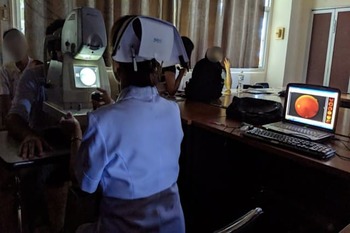Google's Diabetic Blindness Detection Not Effective
 Google is a global leader in innovation, and while they are most known for their search engine, the company creates several other devices to make our lives easier. In recent years Google has been working on and was able to create an artificial intelligence (AI) device to detect diabetic blindness early. The AI worked excellently in tests (90 percent accuracy in the lab); however, it proved to be less effective in the real world.
Google is a global leader in innovation, and while they are most known for their search engine, the company creates several other devices to make our lives easier. In recent years Google has been working on and was able to create an artificial intelligence (AI) device to detect diabetic blindness early. The AI worked excellently in tests (90 percent accuracy in the lab); however, it proved to be less effective in the real world.
The device was created to speed up diagnosis for diabetic blindness, from 10 weeks to 10 minutes. Unfortunately, the AI didn’t perform well at 11 clinics in Thailand. The theory behind the reduced efficacy is because the AI was trained on high-resolution images. It was discovered that the nurses in Thailand often had to scan dozens of patients quickly, and they did so in poor lighting conditions, which did not produce high-resolution images. The result was the AI rejecting over a fifth of the images. Google wrote that they still have to “study and incorporate real-life evaluations” before the AI can be widely deployed, adding:
“Since this research, we have begun to hold participatory design workshops with nurses, potential camera operators, and retinal specialists (the doctor who would receive referred patients from the system) at future deployment sites. Clinicians are designing new workflows that involve the system and are proactively identifying potential barriers to implementation.”
San Diego Center for the Blind can help you regain some of your independence. Please contact us to learn more.
Google admits its diabetic blindness AI fell short in real-life tests



